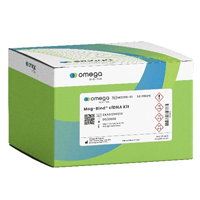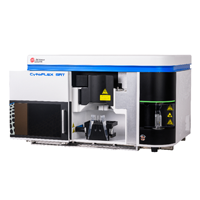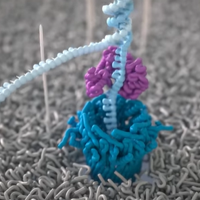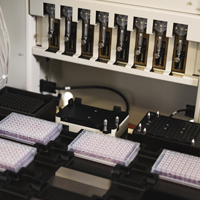Genotyping is the process of identifying genetic variations, such as single nucleotide polymorphisms (SNPs), insertions, deletions, or other mutations, in an individual's DNA. This analysis helps researchers and clinicians understand genetic differences among individuals or populations.
Techniques used for gene expression analysis:
- Microarrays: Microarrays allow the simultaneous analysis of the expression levels of thousands of genes. They involve placing DNA fragments representing different genes on a solid surface and hybridizing them with labeled RNA samples to measure gene expression levels.
- RNA Sequencing (RNA-Seq): This technique involves sequencing the entire transcriptome, providing a comprehensive view of gene expression. It allows the identification of novel transcripts, alternative splicing, and precise quantification of mRNA levels.
- Reverse Transcription Polymerase Chain Reaction (RT-PCR): RT-PCR amplifies and quantifies specific RNA molecules, providing a targeted approach to measuring gene expression. It is widely used for its sensitivity and specificity.
- Quantitative PCR (qPCR): qPCR is a variation of PCR that enables the real-time monitoring of DNA amplification. It is used for accurate quantification of gene expression levels and is particularly valuable in validating results from high-throughput methods.
Techniques used for Genotyping:
- Polymerase Chain Reaction (PCR): PCR amplifies specific DNA regions, facilitating the detection of genetic variations. It is commonly used for targeted genotyping of known polymorphisms.
- Single Nucleotide Polymorphism (SNP) Genotyping Arrays: These microarrays are designed to analyze large numbers of SNPs simultaneously, providing a high-throughput method for genotyping.
- Next-Generation Sequencing (NGS): NGS technologies can sequence entire genomes or targeted regions, offering a comprehensive approach to genotyping and allowing the identification of novel genetic variants.
Gene expression analysis has diverse applications across biological and medical fields:
- Disease Research and Diagnosis: Studying gene expression patterns helps identify genes associated with diseases, aiding in understanding their molecular mechanisms. This knowledge contributes to the development of diagnostic markers and potential therapeutic targets.
- Cancer Research: Gene expression analysis in cancer cells can reveal aberrant patterns that distinguish cancerous tissues from normal ones. This information guides cancer diagnosis, prognosis, and the development of targeted therapies.
- Drug Discovery and Development: Analyzing gene expression in response to drugs helps researchers identify how drugs influence cellular processes. This information is crucial in drug discovery, allowing the development of more effective and targeted therapeutic agents.
- Personalized Medicine: Gene expression profiling enables the customization of medical treatments based on an individual's genetic makeup. This approach enhances treatment efficacy and minimizes adverse effects by tailoring interventions to a patient's specific genetic characteristics.
- Biotechnology and Agriculture: Gene expression analysis is employed in the development of genetically modified organisms (GMOs) with desired traits, such as improved crop yield or resistance to pests. It also contributes to understanding the regulatory mechanisms in plants and animals.
- Neuroscience: Studying gene expression in the brain helps unravel the molecular basis of neurological disorders and provides insights into brain development, function, and plasticity.
- Environmental Monitoring: Gene expression analysis in organisms exposed to environmental factors helps assess the impact of pollutants, toxins, or other stressors on living systems, aiding in environmental monitoring and conservation efforts.
- Stem Cell Research: Gene expression profiling is crucial in understanding the differentiation and developmental potential of stem cells. It guides the use of stem cells in regenerative medicine and tissue engineering.
Applications of Genotyping:
- Association Studies: Genotyping is used in genome-wide association studies (GWAS) to identify genetic variants associated with diseases, traits, or drug responses.
- Forensic Analysis: Genotyping is applied in forensic science for individual identification, paternity testing, and criminal investigations.
- Population Genetics: Understanding genetic diversity within populations and identifying specific genetic markers help study human evolution, migration patterns, and genetic predispositions.


































































